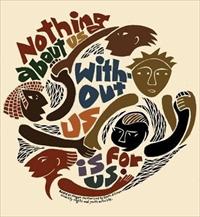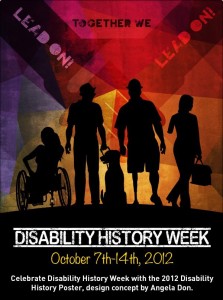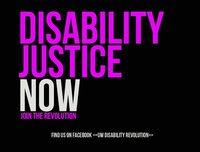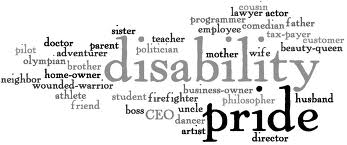When Children Die, It’s Time to Grieve and to Reflect, Not to Scapegoat
Yesterday morning in Newtown, Connecticut, a young man murdered 20 children at the Sandy Hook Elementary School, along with six adults, having already killed his own mother. When I saw the news, I broke down and cried. All I could say, over and over, was Why would anyone kill little children? How could anyone do such evil?
Yes, I’m using the word evil. I can’t think of any word that even comes close to describing the actions of someone who is so angry, so desperate, and so full of self-pity that he decides to take 20 children with him. And really, there is no answer to the question of why. Sometimes, people do evil because they can, because they decide to discard their moral compass, because they decide to inflict pain.
But of course, we live in a society in which simply saying that evil is afoot doesn’t cut it anymore. We want answers. We want control. We want it fixed. So we make it a sickness, because we hope that someday sickness will have a cure.
And so we find scapegoats. When another atrocity happens, we hear people say that the shooter must have been mentally ill. We hear people say that the shooter must have had autism. In this case, the media is engaging in scapegoating both groups: more than one news outlet has reported that the shooter was both mentally ill and autistic, as though being mentally ill and autistic were an explanation for killing 27 people.
Yes, it’s happening again. It’s becoming predictable. In the past 24 hours, I have been involved in discussions in which people have not only engaged in the usual He must have been mentally ill speculations, but have also said that because autistic people have meltdowns, it’s plausible that the shooter simply had a meltdown.
Let’s get something straight right now. Autistic people have meltdowns because their sensory systems get overloaded and it hurts more than anyone who has never experienced it could understand. And yes, sometimes, people strike out in the course of a meltdown. Not always, but sometimes. Often, they strike out at themselves. And when they do strike out, it’s a spontaneous act. It’s a neurological response that is not even remotely close to premeditating a murder.
People in the midst of a meltdown do not take the time and the forethought to arm themselves with a bullet-proof vest and several weapons, make their way to an elementary school, and consciously target two particular classrooms of children and the school office. In fact, most people in the midst of a meltdown just want to withdraw and get away from people and the stressors that cause overload.
I’ve said it before and I’ll say it again: Autism is not a predisposing factor to premeditated violence. Autistic people are far, far more likely to be the victims of crime than its perpetrators.
And the same goes for mental illness. Most mentally ill people do not harm anyone and are at much greater risk of being the victims of violence.
If you must ask the question of why, take a look at what all the school shooters have in common: they are young men. Of course, simply being a man does not predispose anyone to violence. But perhaps the fact that we equate manhood with power and domination in our society does. Maybe, just maybe, we need to separate violence from the definition of being a man. Maybe, just maybe, we need to start looking at the way that we glorify violence among men.
That’s not scapegoating. That’s taking a good look at we do, as a culture, to make it more likely that people choose evil.
Scapegoating innocent, vulnerable groups of disabled people — people with autism, people with mental illness — is irresponsible. It has the potential to wreak havoc in the lives of people who are already struggling against stigma and exclusion.
So let’s do some self-reflection as a culture. Let’s look at what we’re communicating to our young men about what it means to be a man.
And when we do, let’s leave disabled people out of it.
© 2012 by Rachel Cohen-Rottenberg









Jess' Mom
12/15/2012 | 12:10 pm Permalink
Thank you, Rachel. This is so well-said and absolutely “right on”!
joe wiemann
12/15/2012 | 12:26 pm Permalink
Thank you for writing this. It really means alot from a parent of a child who has been diagnosed with autism.
Amy Caraballo
12/15/2012 | 12:53 pm Permalink
Absolutely. If we want to scapegoat and blame mental health, then we need to recognize that humans are all susceptible to mental health issues. No one is exempt from depression, anxiety, and alcoholism. By using this scapegoat line of thinking we are only proving that everyone is capable of committing this travesty.
Paula C. Durbin-Westby
12/15/2012 | 1:16 pm Permalink
Excellent post. This brings up a lot of good points, points that need to be seriously considered. If it is OK to post a link to my entry here, I would like to. One of the things I wrote, as I made some changes today, was ” I am going to remember the victims and their loved ones, some of whom may have had Asperger’s syndrome themselves, but were gunned down just the same. I am let myself grieve, if I can, just like, and with, parents all over America.”
Rachel Cohen-Rottenberg
12/15/2012 | 3:52 pm Permalink
Paula, it’s fine to post a link. Please go right ahead. Thanks!
Leah Kelley
12/15/2012 | 2:16 pm Permalink
Thank you… Rachel! I will be sharing widely…
Leah
Dr. Placebo
12/15/2012 | 3:02 pm Permalink
The scapegoating that happens immediately after this kind of tragedy has real consequences. I suffered them personally. The day after the Virginia Tech shootings, I was accused of being the next mass shooter and kicked out of my degree program for nothing more than having a mental illness and being of the same race as the Virginia Tech shooter. I started looking for a lawyer immediately and ended up getting a favorable settlement out of it. But it still completely destroyed three years of my life, and I’m still dealing with the aftereffects. And what about those who become too disabled as a result of that kind of scapegoating to actively enforce their legal rights? I probably would not have been able to find a lawyer within a reasonable amount of time on my own; I had friends making phone calls to lawyers on my behalf and it still took months. It’s better to prevent the stereotyping in the first place than to deal with the consequences after it hurts someone.
Margaret
12/15/2012 | 4:02 pm Permalink
While I agree that scapegoating is never a good idea in any situation let alone one as grave as this, I am curious that the autism community has been so up in arms. If it turns out this young man was autistic, is it not proper to report it? Are you suggesting it shouldn’t be mentioned?
Honestly, it makes no sense to me. Nor have I read any report that seemed to scapegoat autistic people as a group.
If you step back a bit, might it be so that you yourself are seeing this event through the lens of your own issue rather than for what it is?
Kind regards.
Rachel Cohen-Rottenberg
12/15/2012 | 4:17 pm Permalink
It’s not the fact that autism is being mentioned that concerns me. It’s the fact that it’s being used as an explanation for why the shooter killed 26 people. Here’s an example:
http://www.mediaite.com/tv/piers-morgan-quack-says-people-with-autism-lack-empathy-somethings-missing-in-the-brain/
Also, please be careful about suggesting that because disabled people see things through the lens of our own experience, we therefore aren’t objective. No one is objective. Everyone sees things through the lens of their own experience. Disabled people are keenly aware of what this sort of reporting does to our lives, and our experience makes us quite sensitive to its potential repercussions. If you could see things through our eyes, you would understand why we are upset.
chavisory
12/15/2012 | 8:03 pm Permalink
It’s not necessarily irresponsible to address it, IF it even turns out to be true, but that’s heavy speculation at this point. And it absolutely is irresponsibility bordering on scapegoating to dangle it as an explanation, when autism does not in any way predispose someone to committing violence, and given the fallout that exploiting this as an explanation can have for the lives of so many innocent and constitutionally nonviolent people.
Andrea S.
12/15/2012 | 8:28 pm Permalink
Margaret, this is not the first time that news media has tried suggesting that a violent suspect has autism, or mental health issues, or both. And is not the first time that people in the media have hinted that the autism, or the mental health issues, or both might have led to the violence. I have noticed this pattern also. And I am not autistic. And do not have any mental health issues.
It’s not inappropriate to state that a given person is autistic if they are, in fact, autistic. What is inappropriate is when the media brings it up specifically in the context of talking about the act of violence this person has committed with the implication that the condition could have led to the violence.
To give an analogy: I’m deaf. I also have been a professional writer in the past (have moved on to other aspects of my career now). The fact that I am deaf has very little relevance to the fact that I am a writer, so someone writing an article about the fact that I have been a writer and describing the part of my career in which I pursued this profession would have little reason to mention that I am deaf in relation to my being a writer. (For example, “Andrea is a writer despite being deaf” would be inappropriate. But something like, “Andrea says her experiences with discrimination as a deaf woman has given insights that influence her writing” would be fine if I did make a comment like this.
Similarly, if I were to suddenly decide to get a gun and shoot someone (no, am not planning this, just a hypothetical), the fact that I am deaf would have about zero to do with this. So if the media were to do a story about me shooting someone, there would be little reason to mention that I am deaf. My deafness would have about as little to do with my choice to do something evil as it would with my ability to accomplish something good and it would be silly to imply otherwise.
Same thing if a person is autistic. IF the shooter IS autistic, this has very little, probably zero to do with their choice to shoot 27 people. Therefore there shouldn’t be a reason to keep highlighting this or any other poorly understood mental health label every time the media talks about the shooting. To keep bringing it up is to reinforce the stereotype of mental illness or autism = violence myth. It doesn’t help us understand what really caused this to happen (because even if the person is autistic, or has a mental health issue, it probably isn’t relevant, there are other things going on). It only stigmatizes the many millions of other autistic people and people with various mental health labels without bringing us any closer to actual understanding of the roots of violence
Joel Sax
12/15/2012 | 4:47 pm Permalink
Another thing that they all have in common: they possessed killing machines that can destroy multiple targets in a short period of time. Doesn’t matter if you are autistic, mentally ill (as I am), or not, I have been asking people who defend their availability how these shooters are protected by having such weapons. The answer, so far, is silence.
Tara Woods
12/15/2012 | 6:13 pm Permalink
Thank you for writing this. Thank you. I wish more people were saying it. It’s such an awful, awful thing to happen. And it feels like everyone else is getting together and grieving and venting and comforting one another, and my family isn’t allowed to give comfort, or to grieve with everyone else. Because everyone’s decided we’re part of the problem. My sister was crying earlier. I’m going to show this to her. thank you.
Bob Rottenberg
12/15/2012 | 7:09 pm Permalink
I highly recommend the magazine VoiceMale as a source for soul-searching writing about how we, as men, can take steps to acknowledge and change the culture of violence and domination that you so accurately describe as the root cause of this type of violence. Here is a publication that does not shy away from looking reality in the face.
http://voicemalemagazine.org/
wjpeace
12/16/2012 | 9:47 am Permalink
The demonization of Adam Lanza and by extension Autism is an old story. The press and its penchant to be quick to blame a monster like person with a disability reminds me of the Hunchback of Notre Dame.
Rachel Cohen-Rottenberg
12/16/2012 | 11:58 am Permalink
I was just saying something similar to a friend who is the mom of an autistic daughter. I reminded her that our culture has associated disability with evil for centuries. This is just one iteration.
Jules
12/16/2012 | 1:42 pm Permalink
The minute I heard that the shooter was “painfully shy” I knew what was coming next. . .
Today I’m feeling angry and frustrated. I just saw yet another well meaning link to an incredibly ignorant article that I’m being mum about because I don’t want to get slammed online. I am appalled at how ignorant people are about what they call “mental illness.” Today’s meme amongst my liberal friends is “more mental health services – less guns!” On the face of it, I agree, but not when we are drugging children with off label drugs for poorly defined conditions.
This is the article that I keep seeing (and it’s been called “profound” by people with Ph.D.s!):
http://www.huffingtonpost.com/2012/12/16/i-am-adam-lanzas-mother-mental-illness-conversation_n_2311009.html
I’d be curious what you think. The mother writes, ‘We still don’t know what’s wrong with Michael. Autism spectrum, ADHD, Oppositional Defiant or Intermittent Explosive Disorder.” This is followed with “He’s been on a slew of antipsychotic and mood altering pharmaceuticals, a Russian novel of behavioral plans.”
Giving children antipsychotic medication sickens me. This parent describes her child escalating because he’s not wearing his slacks in the appropriate color for his school’s dress code. I want to scream, “Send you kid to another school!” Or say, “I understand you like wearing navy blue. It is silly that your school doesn’t allow it.” Instead, this mom sounds angry and fed up with her child for his simple color preference.
Rachel Cohen-Rottenberg
12/16/2012 | 5:50 pm Permalink
Jules, the article you’re referring to has now been picked up by the Huffington Post, the Washington Post, and others — all under the writer’s real name, with a photo of her son. I can’t even speak to the content because the fact that the woman allowed it to be published under her real name, with a photograph of her son, really appalls me. As a parent, I just can’t understand writing an article under one’s own name, with a photograph of one’s own child, and suggesting that the child is going to grow up to be a mass murderer. How does that help the child? He’s 13 years old. He can find his mother’s blog. So can everyone he knows. So can everyone with an Internet connection.
I can understand the exhaustion and the helplessness that the mother feels; I can even understand harboring this fear of the future in her own heart. Fear is fear; it can’t be argued with. And the issues she raises are important. But I can’t understand publicizing the fears she harbors in her heart about a child she is trying to help. How does breaching his privacy help him feel safe and respected? How does talking about him as though he is going to grow up to commit murder and mayhem engender trust? It’s just horrifying to me. I can’t imagine this is going to help her relationship with her son. And what about her two other children? What happens when they go to school and someone says that their brother is going to grow up to be a mass murderer, and their mother said so?
I understand that it’s important to write about these things, but if people are going to write about their children like this, at the very least, use pseudonyms for *everyone * — not just the child — and for God’s sake, don’t include a photo.
Bob Chianese
12/16/2012 | 6:03 pm Permalink
Rachel: Your point must be that even raising and discussing the topic of autism in connection with the shooting is wrong, even as the expert rejected it. Here is what he said, quoted on the site you reference above in your blog:
“And so, they’re fidgety, they’re anxious, they’re depressed, and if they are suicidally depressed…,” he hesitated, before saying the first true thing that came out of his face, ”we don’t know enough. What I am trying to do in agreeing to come here is to ask people to don’t rush to judgment about who this young man is.”
So just describing characteristics of autism and then saying we don’t know enough about its connection to violent behavior and deliberately rejecting connections between the shooter and autism for you are signs of dangerous prejudice. So this is scapegoating in your view.
Might you suggest what the discussion should be about if not the shooter’s mental state. Is it irrelevant to the discussion of what happened and why? We can focus on our gun culture, on new necessary controls on weapons etc. That’s appropriate, but is the mental state of the shooter off limits to discussion in your view?
Rachel Cohen-Rottenberg
12/16/2012 | 7:12 pm Permalink
Bob, you’ve left out the most important part of Dr. Amador’s quote — the part that comes just before the words you quoted:
“Well, actually, a symptom of Asperger’s, and this is one report coming out which may or may not be true, is something’s missing in the brain, the capacity for empathy, for social connection, which leaves the person suffering from this condition prone to serious depression and anxiety.”
The doctor brought up the lack of empathy trope — which is, first of all, completely untrue, and second of all, highly prejudicial — as a possible explanation of why a person with Asperger’s would commit such an act. And then, after he’s done the damage of saying that people with Asperger’s are missing something in their brains (dear God), he says, “But, hey, let’s not rush to judgment!” That’s like saying, “Hey, I think my neighbor [insert full name here] is cheating on his wife, and I’m going to say it on national TV, but no one really knows for sure, so let’s not rush to judgment.” What do you think people will remember? The accusation or the disclaimer?
And the fact is, we do know plenty about the connection of autism to premeditated violent behavior: there isn’t any connection.
From what I understand, the doctor who made these remarks has apologized and has pledged to clarify them on another newscast.
In a number of other news reports, the shooter’s possible autism and personality disorder have been raised as explanations for what happened. As I said to Margaret above, I have no problem with the press speaking the truth, but the context changes the way in which the truth is received. When the context is that people are bewildered and in pain and asking “Why did this happen?” and then someone raises autism and mental illness, it’s clear that a connection is being made. It’s more than likely that people who want an explanation will seize on that connection, because they don’t want to believe that “normal” people do terrible things. It always has to be those “other” people — when the fact is that “normal” people are the ones who commit most of the crimes.
Tamara G. Suttle, M.Ed., LPC
12/16/2012 | 6:14 pm Permalink
Thank you! It has been such a sad time as we mourn over Newtown’s recent tragedy. However, it has been even sadder to hear journalists refer to the shooter as “a monster” and “disgusting.” The acts of violence were definitely monstrous and mind-bogglingly disgusting. However, by referring to someone who was horribly troubled as “a monster” and “disgusting,” these journalists are continuing to fail to focus on the complexity of the issues at hand – a culture of violence in which those with mental illness are simply discarded and demonized.
So happy to have found your blog!
Tara Woods
12/17/2012 | 8:58 am Permalink
Dear Tamara,
I’m assuming that when you use the words ‘horribly troubled’, you mean ‘mentally ill.’ Thing is, we don’t know that he was.
I think the point of the article is less that people shouldn’t refer to this (POTENTIALLY disabled) man as a ‘monster’, (although, yeah, they shouldn’t, it’s an unhelpful word that ignores the web of social issues that may have contributed to the incident). I think the main points are that a. the assumption that he MUST have had a disability in order to do this evil thing is wrong and ignorant; non-disabled people do horrible things all the time.
And b. the fact that even if he was, in some way, disabled, pointing to that as the dominant factor at play in his decision to murder children is also wrong and ignorant. Most disabled people manage to get by from day to day without murdering children. There were clearly other factors at play here.
But you’re right, demonizing criminals is an easy way for people to avoid examining how the societies they live in contribute to peoples’ abilities to do evil things. What bugs me is that the majority of the cultural conversation seems to have split down the middle; one side is saying that, hey, maybe guns shouldn’t be as easy to purchase as cauliflower, while the other side (the side which owns guns) is trying to deflect attention by pointing to the disabled community as a whole. The number of times I’ve seen people saying, ‘Well, you know, only THOSE sorts of people shouldn’t be allowed to buy guns’… as if the majority of murders-by-gun weren’t committed by neurotypical folk.
Cheers,
Tara
Jules
12/16/2012 | 7:13 pm Permalink
Amen to all of that, Rachel. I originally thought they were stock photos.
I understand that people feel “coming out of the closet” about their personal problems helps others, and it does, but when it comes to kids, they don’t get a say.
Earlier today, I mentioned to someone that a parent I know posts pics of her child, who has the same medley of (mis?)diagnoses as yesterday’s killer. She says she does it out of love, but there’s always a poke at her child. Look at how inappropriately he dressed this morning! I love him anyway! Isn’t he goofy? I love him anyway (and I’m so tired). . .
This really doesn’t have much to do with yesterday’s tragic events, but because people are conflating the two and throwing around diagnoses and labels and judgments, it does.
I’m tired. Tired of the ignorance. Tired of the fact that people can’t seem to accept that sometimes bad things happen, sometimes very bad things happen, that there aren’t easy answers, and that what answers and reasons we have are nuanced and complex and require time, patience, introspection, discussion, not debate, and serious analysis. It seems to me that most Americans are not up for any of that.
Cindi
12/16/2012 | 10:15 pm Permalink
thank-you
Katharine
12/18/2012 | 3:07 pm Permalink
Thank you for your last two blog posts. I am a student teacher in a junior English classroom and it pained me so much to hear my young and easily influenced students repeating things they had heard in the media linking autism to violence. Sadly they (and many adults!) lack the critical media literacy to assess the (in)validity of these claims.
Trackbacks & Pingbacks
[...] When Children Die, It’s Time to Grieve and Reflect, Not to Scapegoat by Rachel Cohen-Rottenber… [...]
[...] When Children Die, It’s Time to Grieve and to Reflect, Not to Scapegoat December 15th, 2012 by Rachel Cohen-Rottenberg [...]
[...] When Children Die, It’s Time to Grieve and to Reflect, Not to Scapegoat [...]
[...] posts outlining the stigma and harmful outcomes that arise when people make assumptions, one from Rachel Cohen-Rottenberg and the other from Neurodivergent [...]
[...] And from Disability and Representation: [...]
[...] to throughout this post) and organizations would be posting and writing, working to counter the inevitable stigma fail that would happen. I even was keeping to commenting on the links of people I care about, people who [...]
[...] written an eloquent warning about the dangers of stereotyping. Rachel Cohen-Rottenberg has penned an essay on scapegoating. Emily Willingham has protested in a NYT blog piece (and, with her usual thoroughness, supplied us [...]
[...] office seems to have viewed race as a good answer to that question. Others have seemed to point to the mentally unwell as the obvious bad guys. Gun control has finally become a feasible policy in the US, but only with restrictions applying [...]